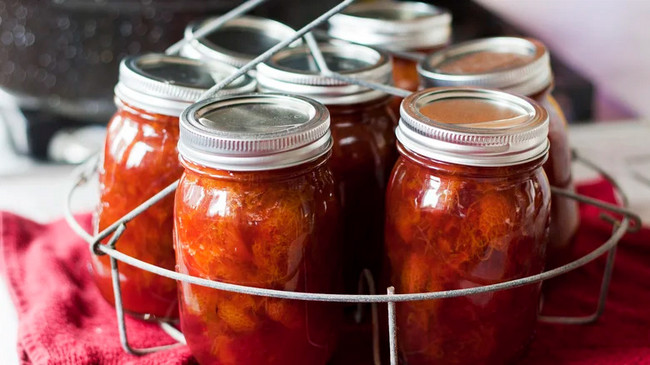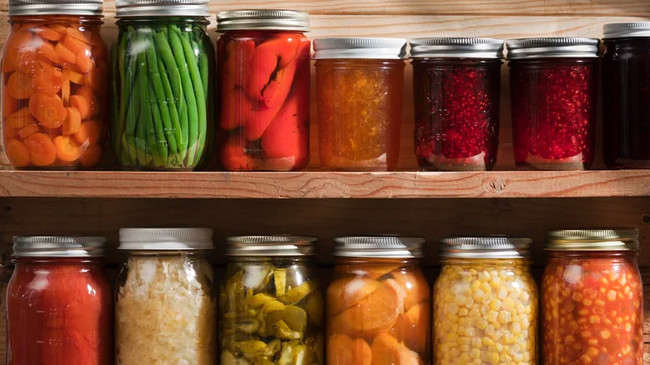✕

Column: industry Tag: Canning,Food Preservation,Canning Lids,Food Safety Published: 2024-09-13 14:49 Source: www.mashed.com Author: ADRIANNA MACPHERSON

Canning is a great way to preserve food, and it's especially useful for taking advantage of items that are in season. However, it isn't as simple as just tossing your prepared item in a jar and putting it on a shelf. There are a lot of mistakes to avoid when canning food, and if you don't get it right, you could end up making yourself and whoever else consumes that improperly-canned food sick. Even in the most eco-conscious kitchens, there are several things you should never reuse, and canning jar lids are, unfortunately, one of them — at least, a particular portion of the lid.
Most canning jars contain a flat lid that rests atop the jar's mouth, as well as a ring used to secure it in place. While you can reuse the rings, the actual flat lid portion should only be used once for food safety reasons. They have a particular type of red compound along the bottom of the lid, right near the edge where the lid meets the jar's mouth, which is designed to obtain a tight seal. However, that compound remains functional for about five years after the lids are manufactured, so if you find a great deal, feel free to stock up for future use. And, even if you're opening a fresh, new pack of lids, you do want to ensure you're not damaging them — when washing them prior to use, avoid abrasive cleansers or tools while sticking to hot, soapy water.
Signs of an improper seal

Even with brand-new lids, there's a possibility of an improper seal. Since incorrectly-canned foods can lead to botulism, it's important to confirm each jar is properly sealed before storing your canned goods. Wait about 12 to 24 hours for your item to fully cool down after canning, then remove the rings (a tightly-screwed ring might give you the impression a jar is sealed when it isn't really) and use your senses to test the seal.
First, visually inspect the lid — the canning process should actually make the lid slightly concave when there's a tight seal in place, so any signs of bulging or even flatness of the lid are bad news. The lid also shouldn't move whatsoever if you press it in the middle, and when you lightly tap the lid with a spoon, it should make a high-pitched ringing sound. If the lid springs back when pressed or makes a dull sound when tapped, discard that jar to be safe.
For those who do a lot of canning and feel wasteful tossing out those lids after each use, consider this — they can be reused in situations where getting a proper, airtight seal isn't necessary, like if you're just meal-prepping mason jar salads. And, if they get a bit rusty after being reused for a while, an easy trick to remove that rust entails using plain white vinegar.
Previous:How American Soldiers Inspired The Aussie Burger
Next:Chef-Approved Equipment You Need To Make Frosting Look Bakery-Worthy
Hot key words
Hot Products
Popular Vendors